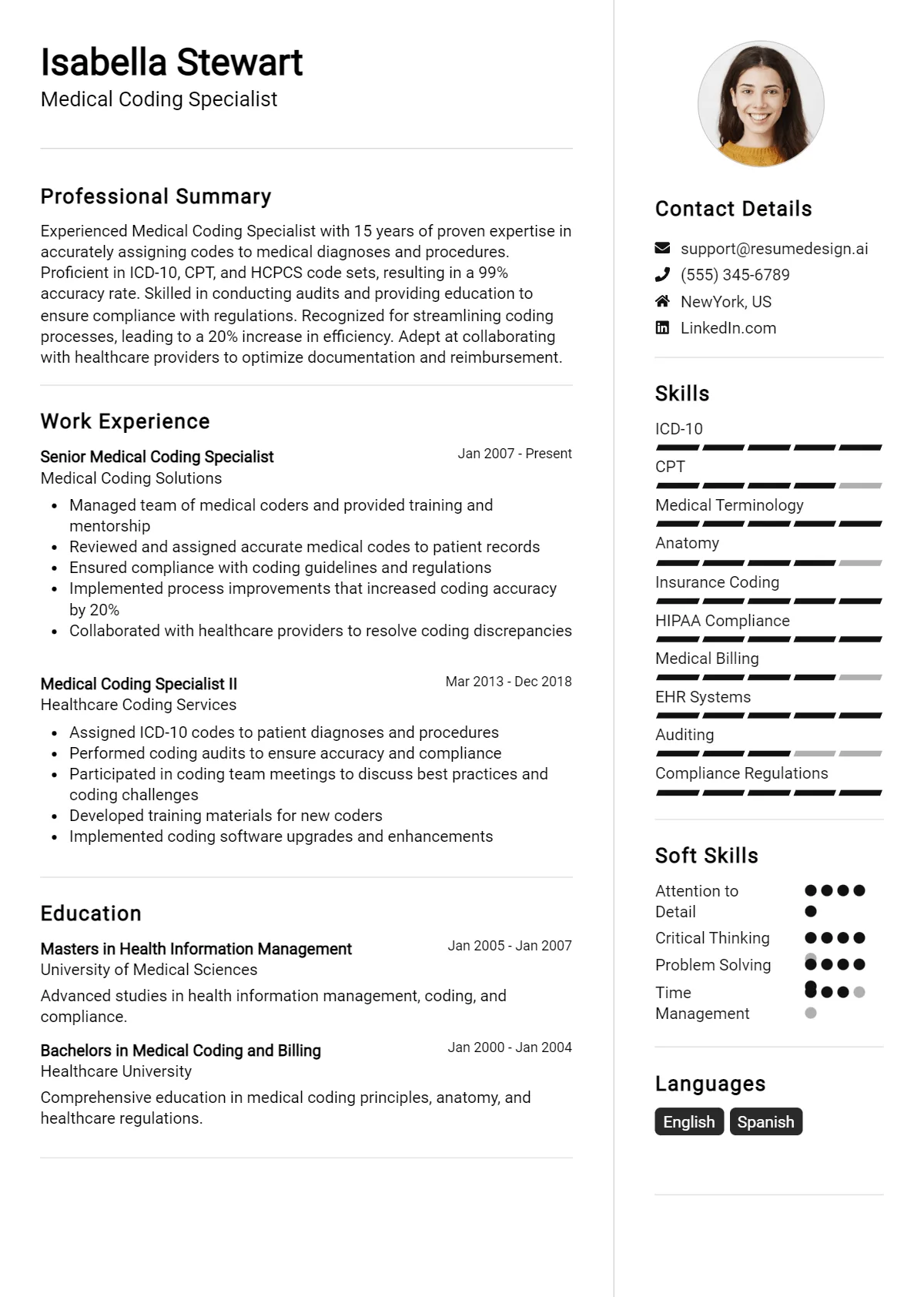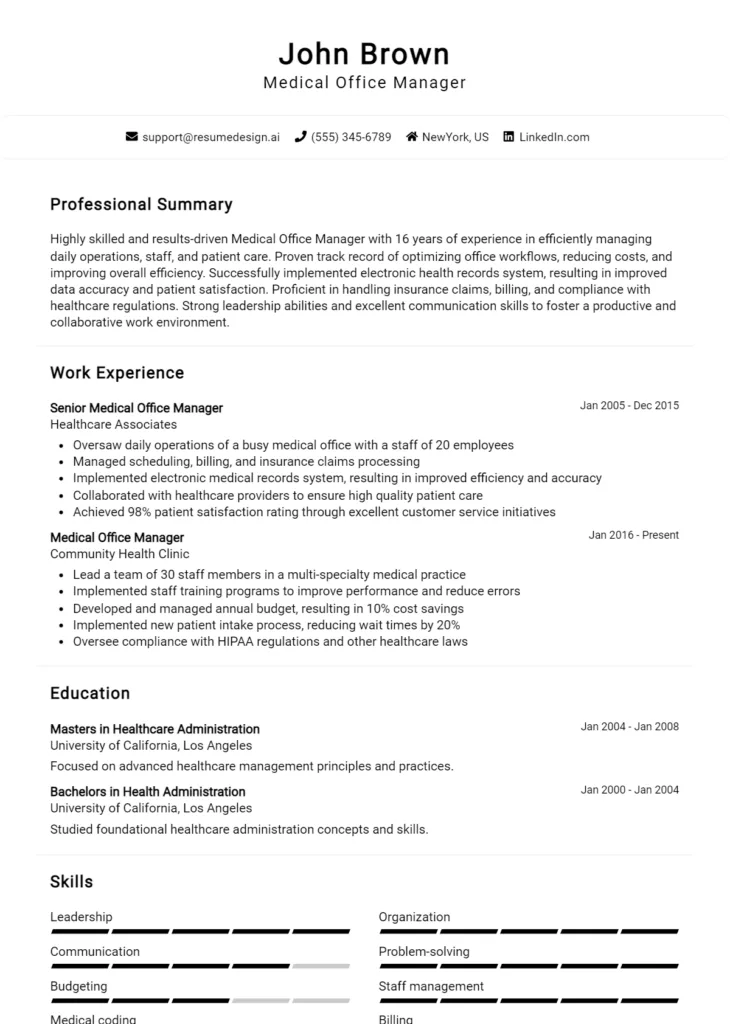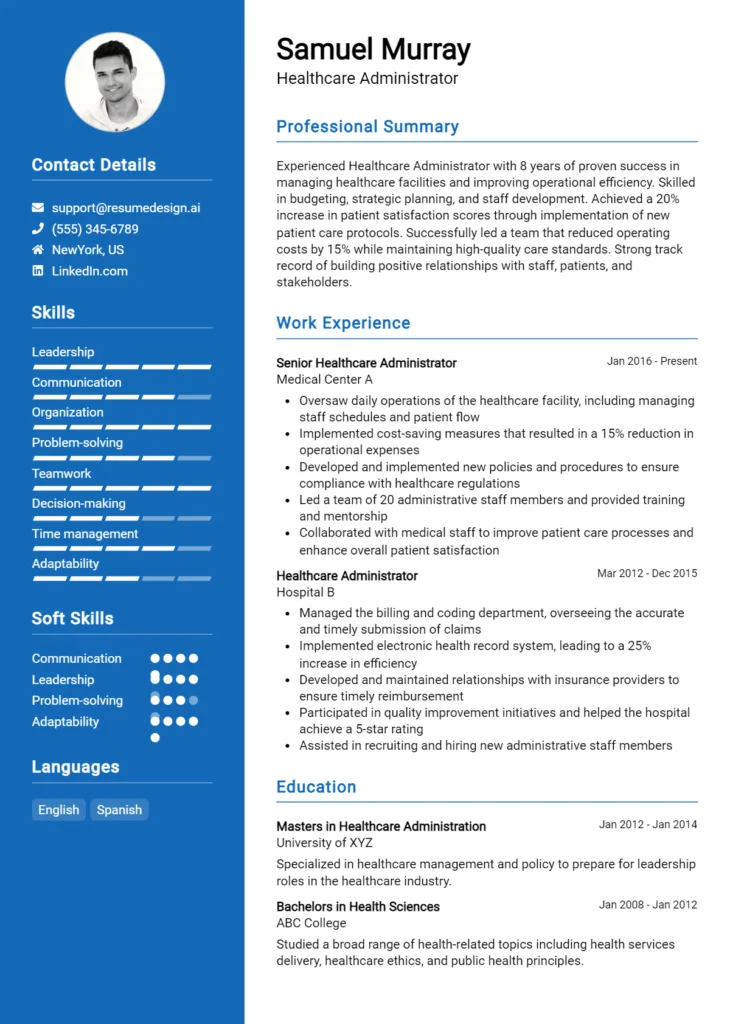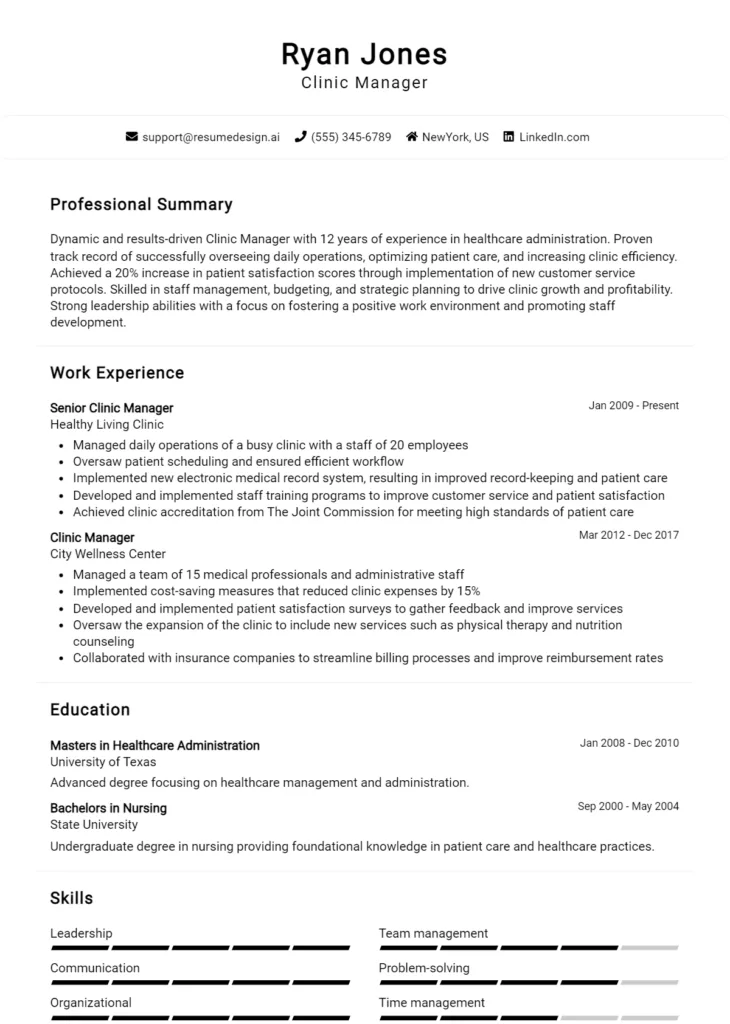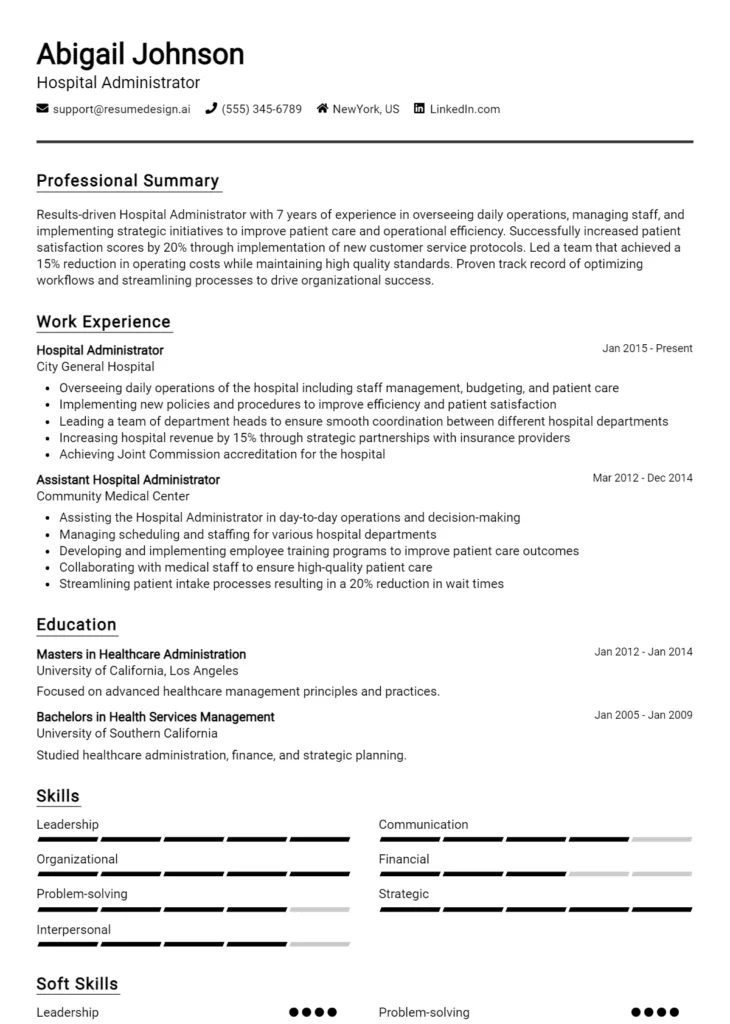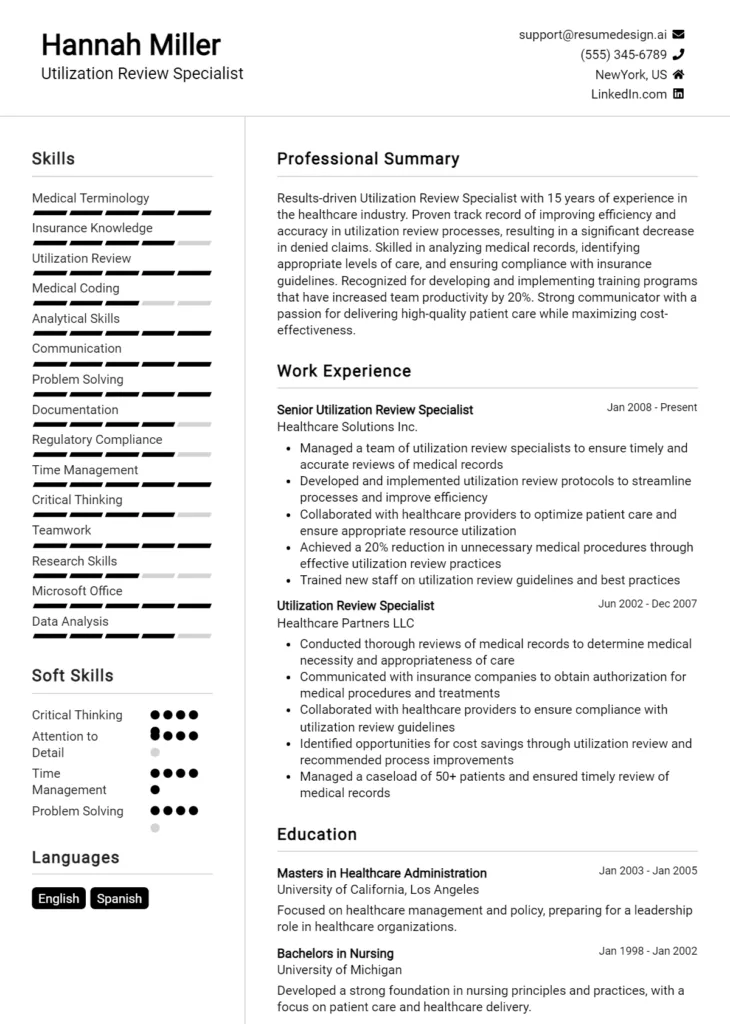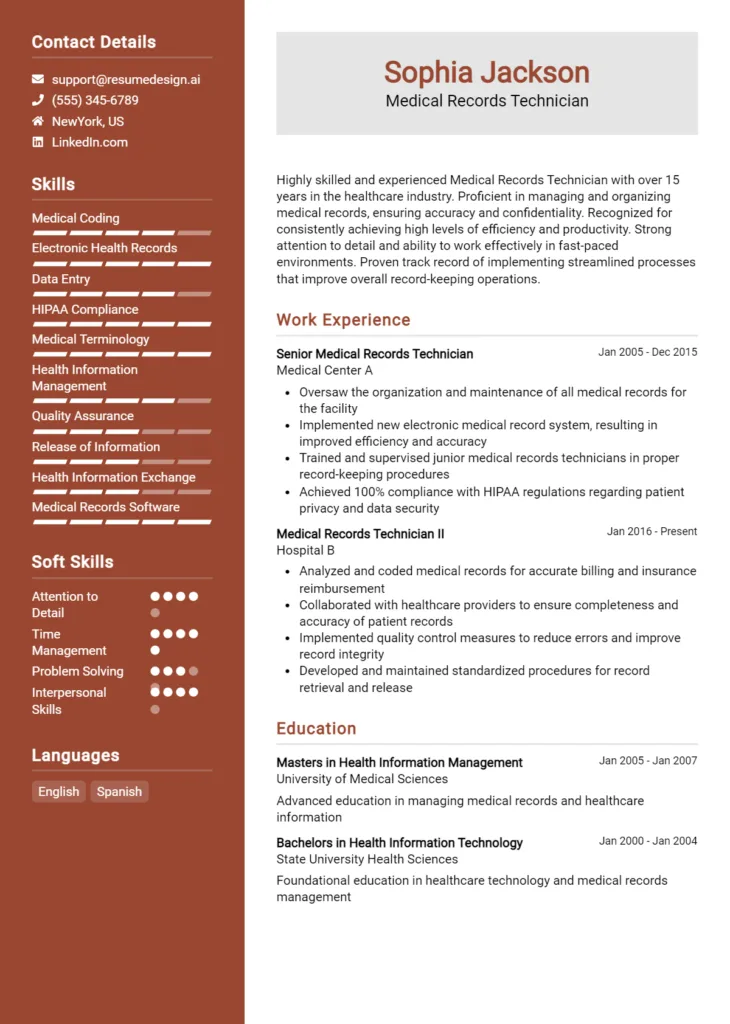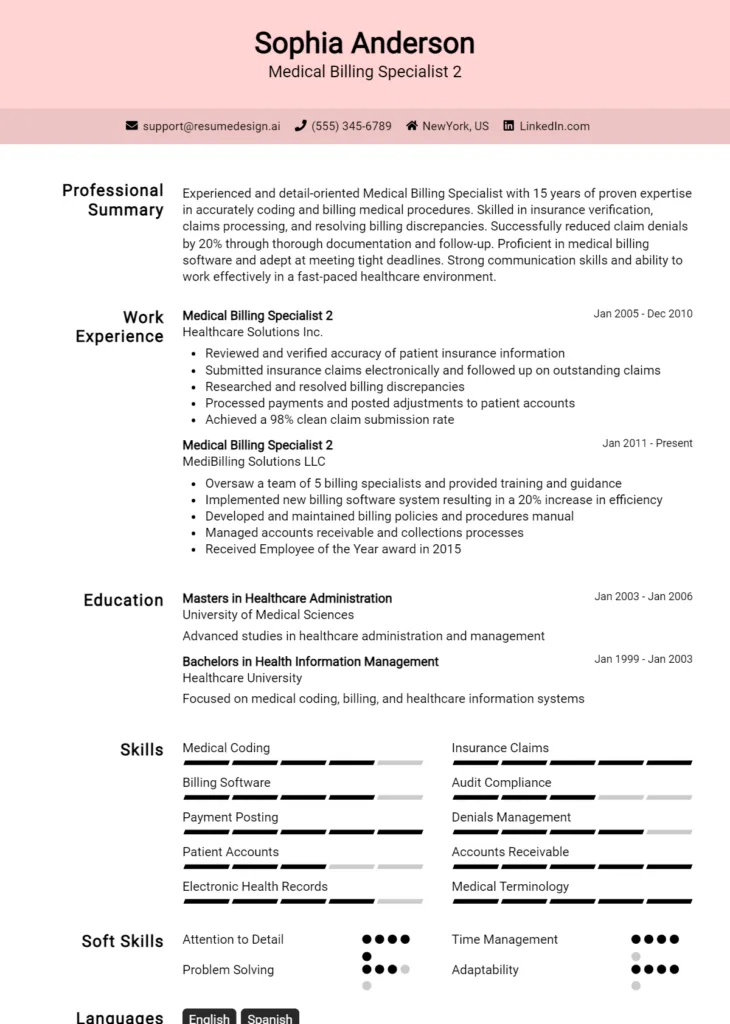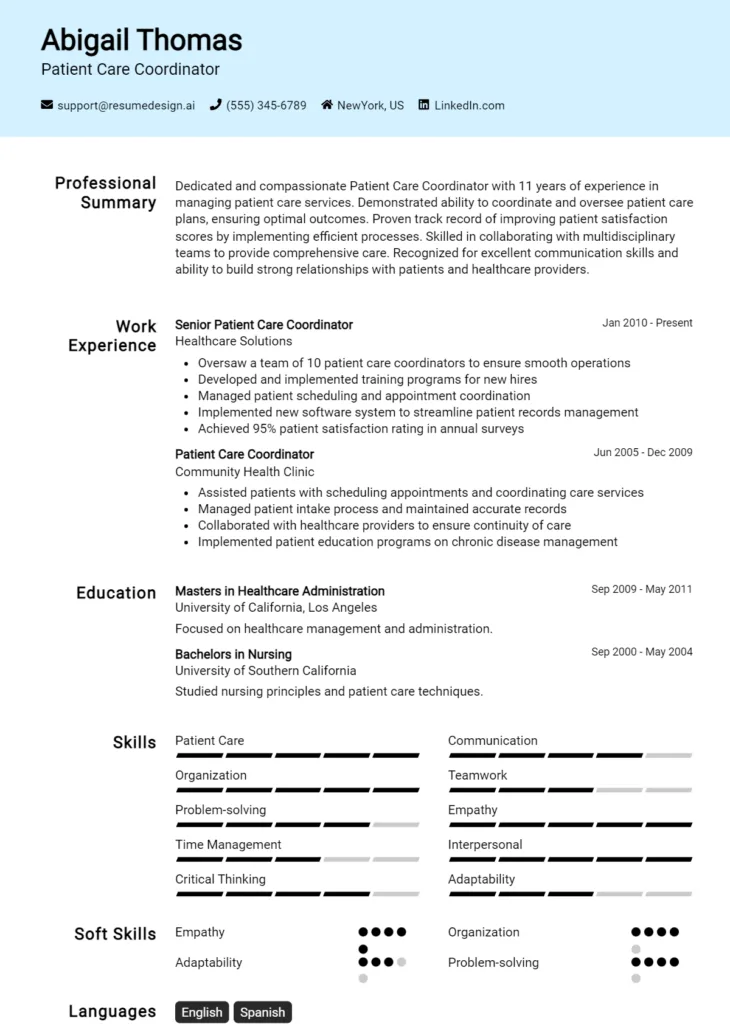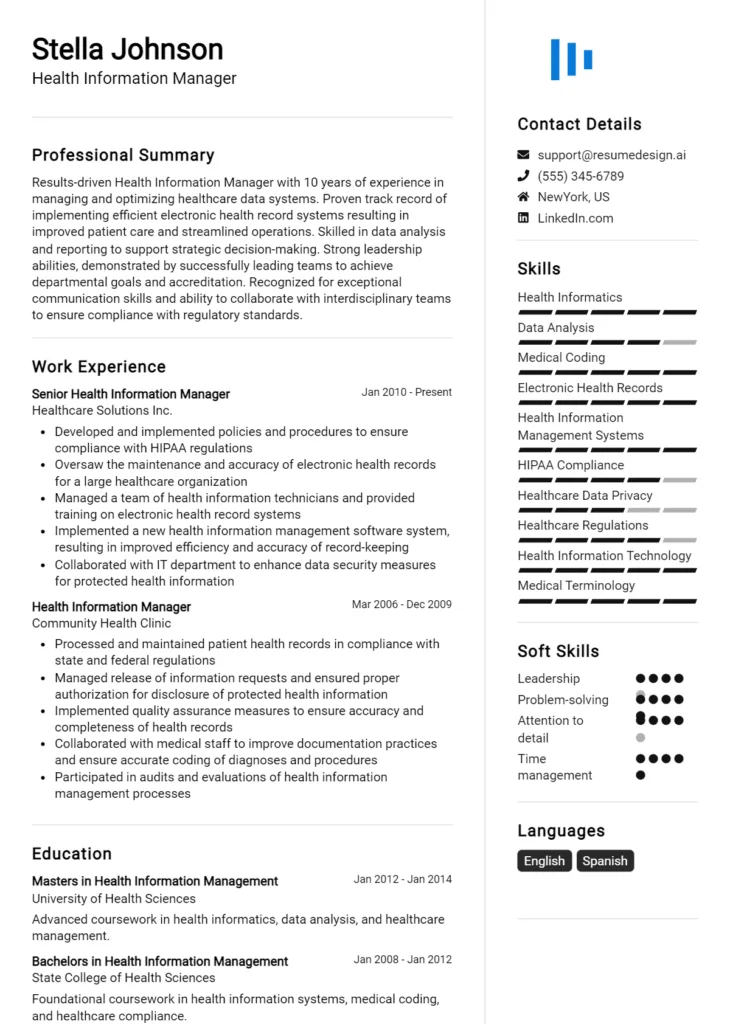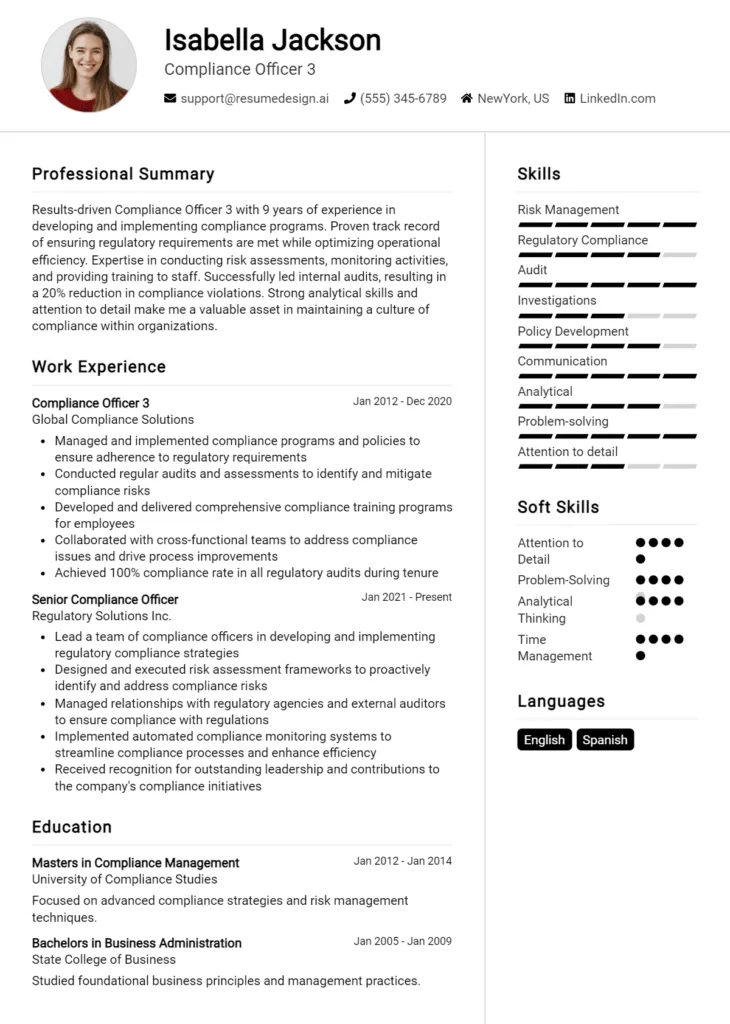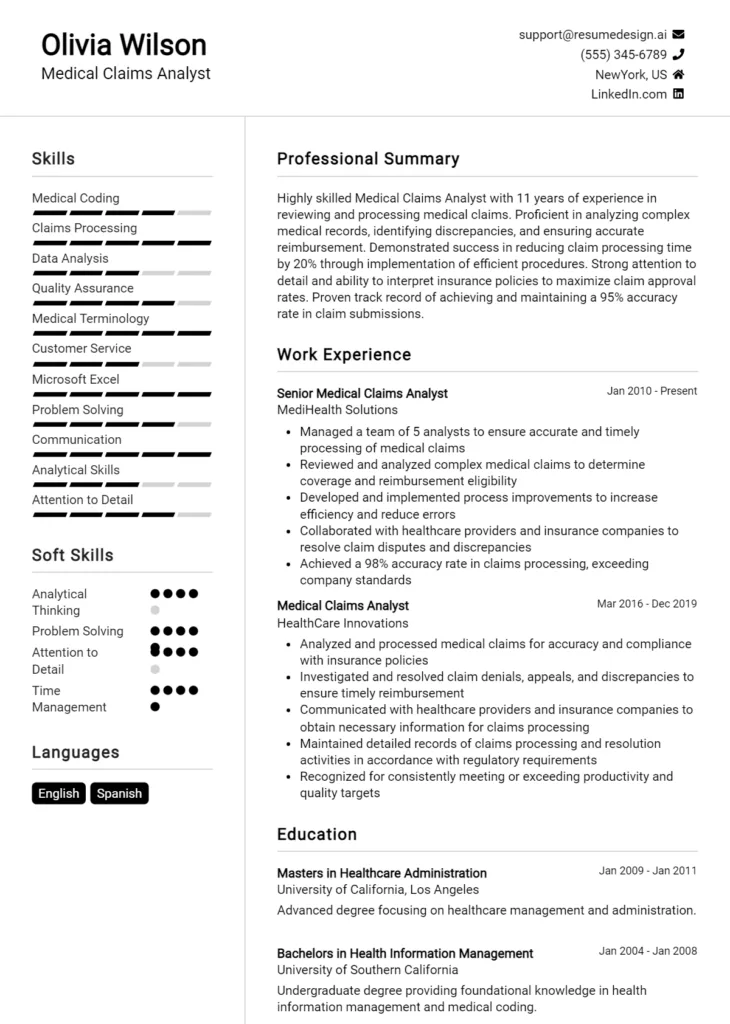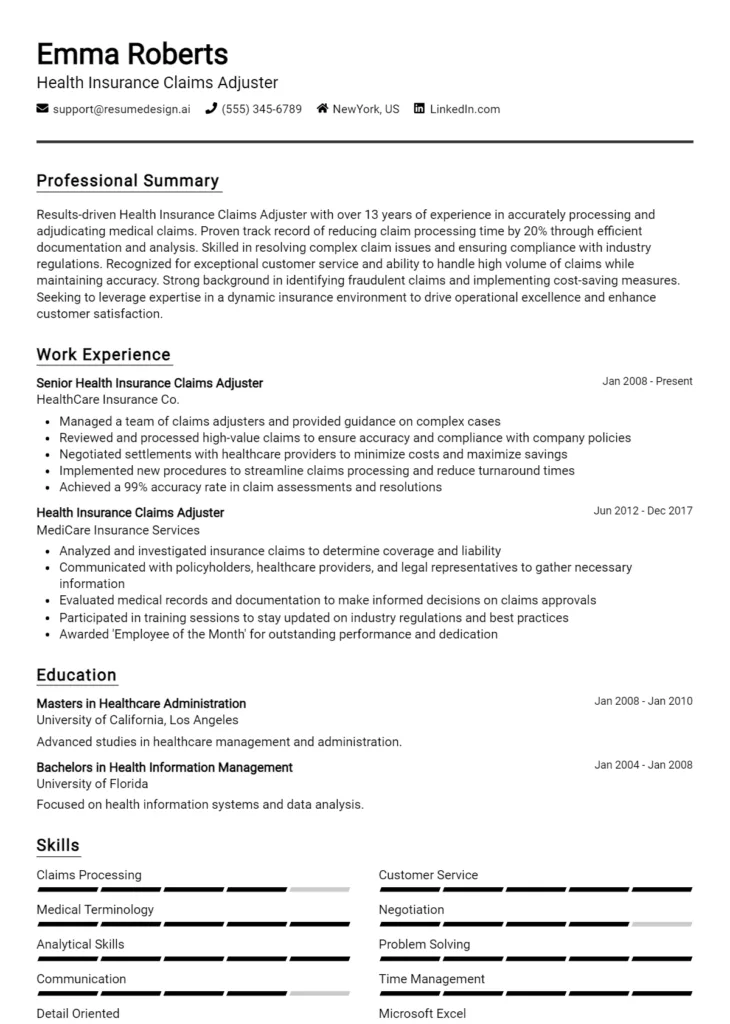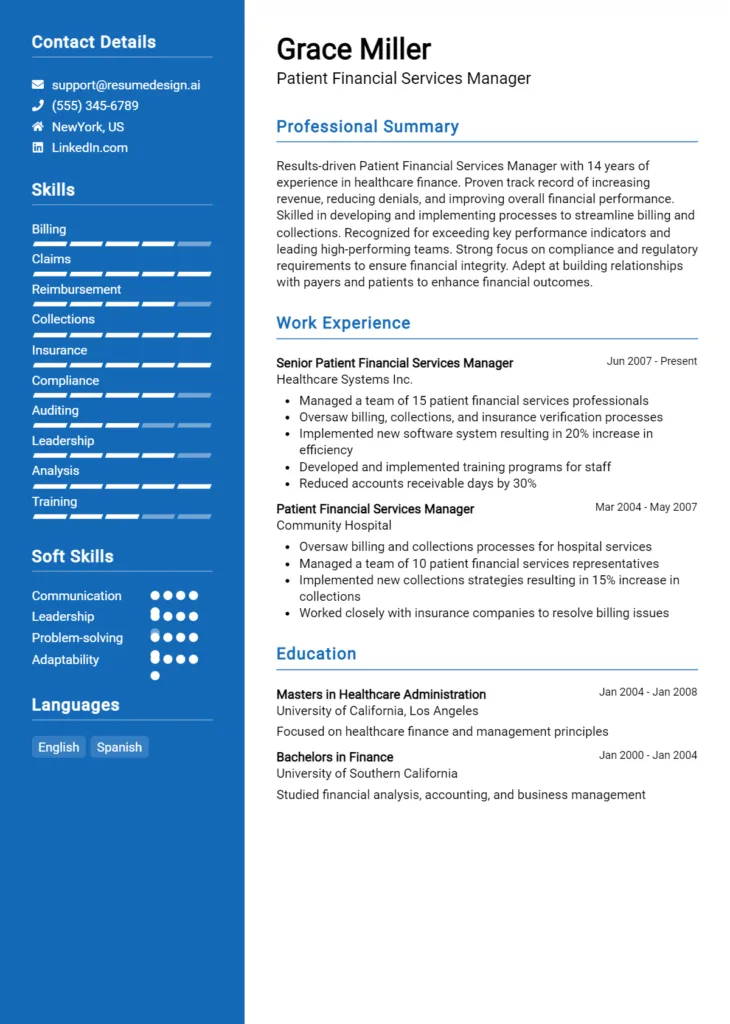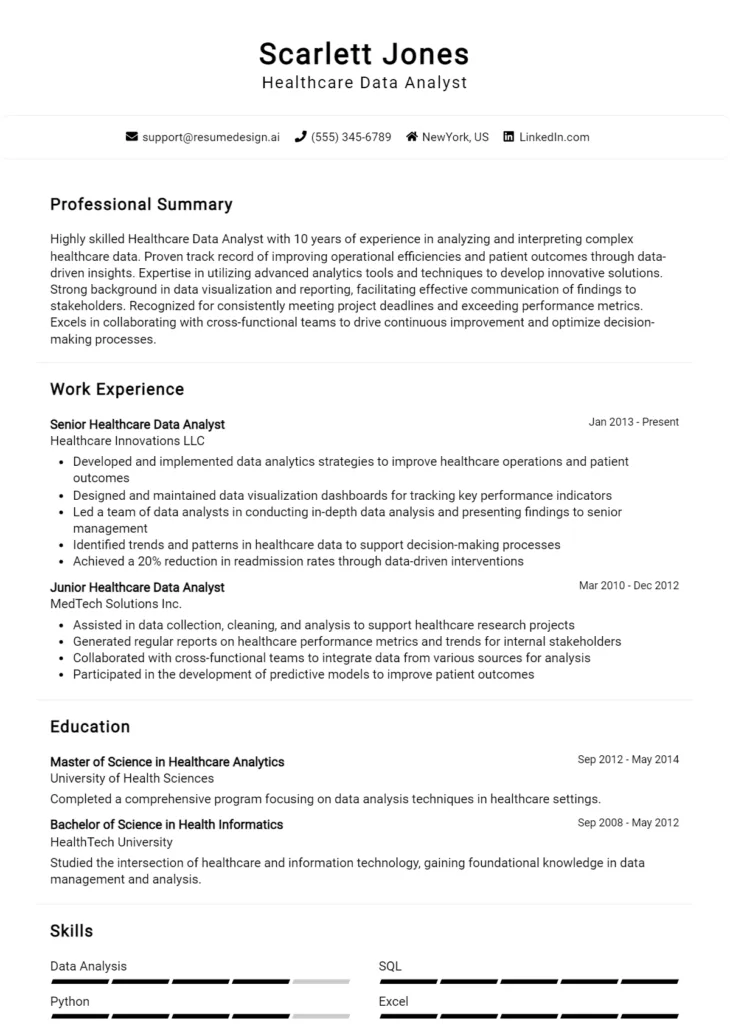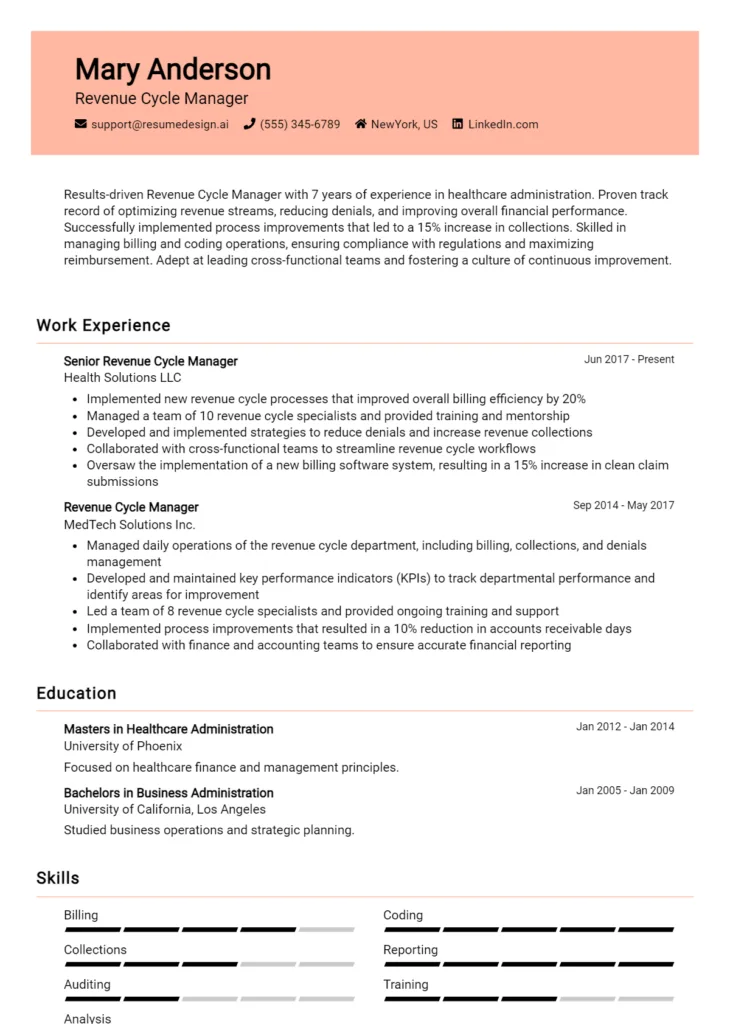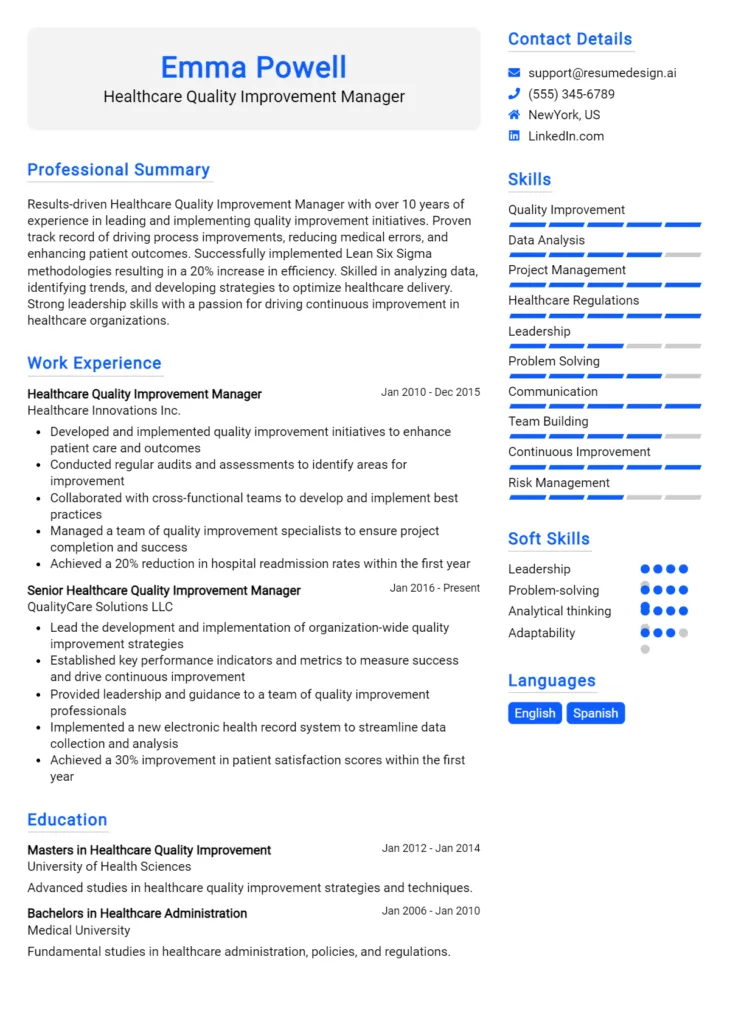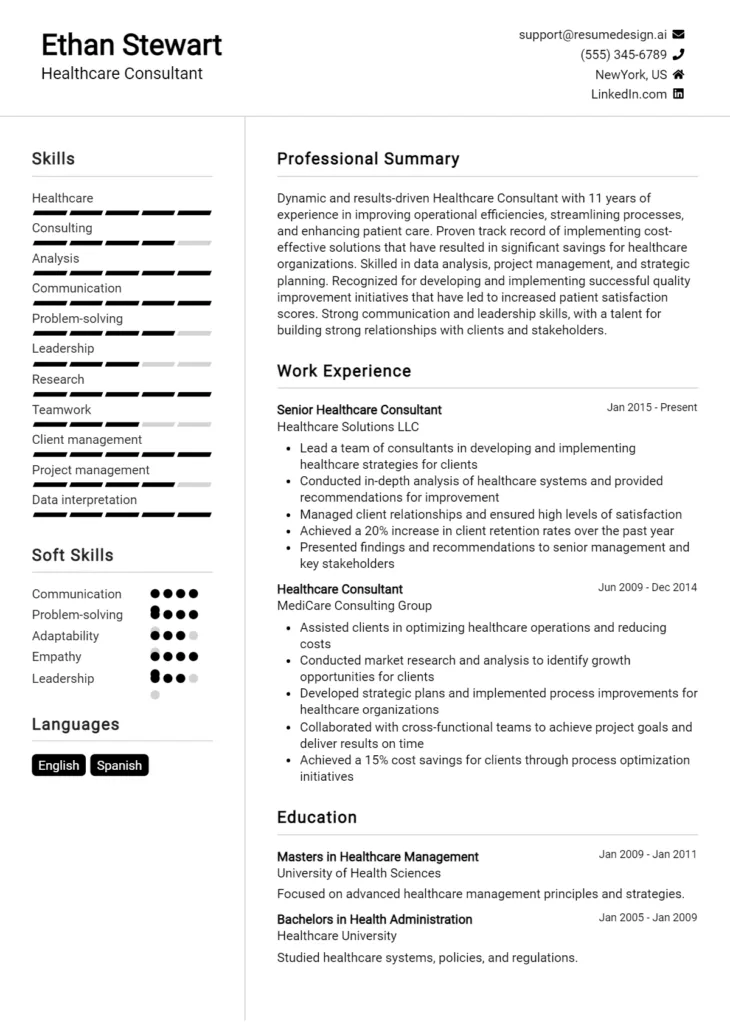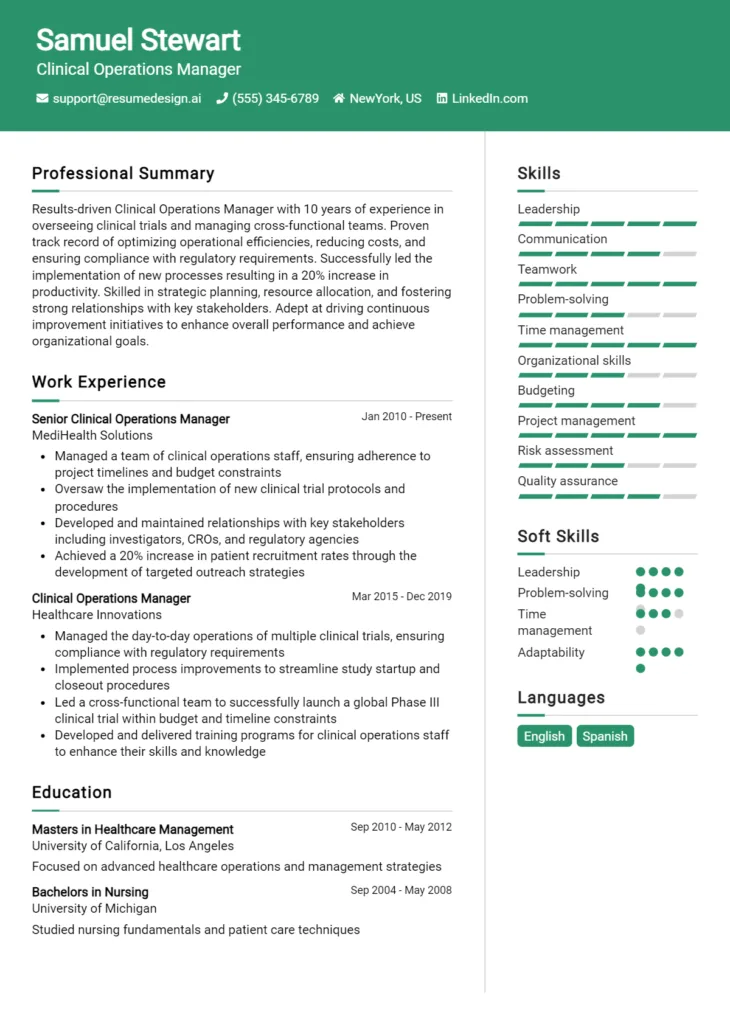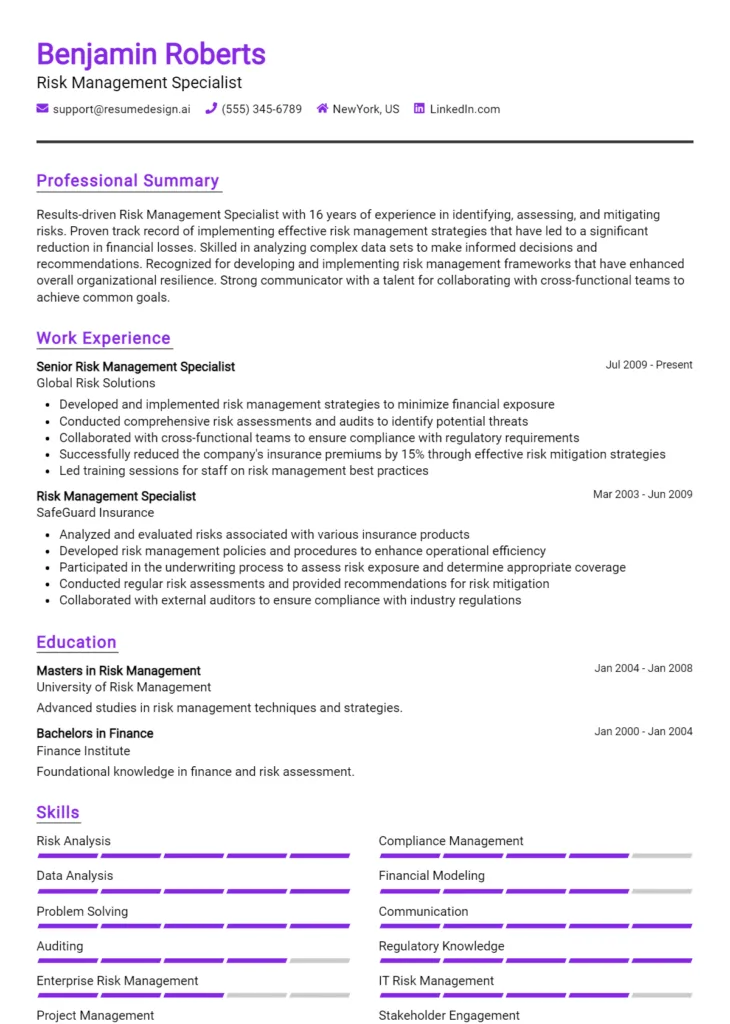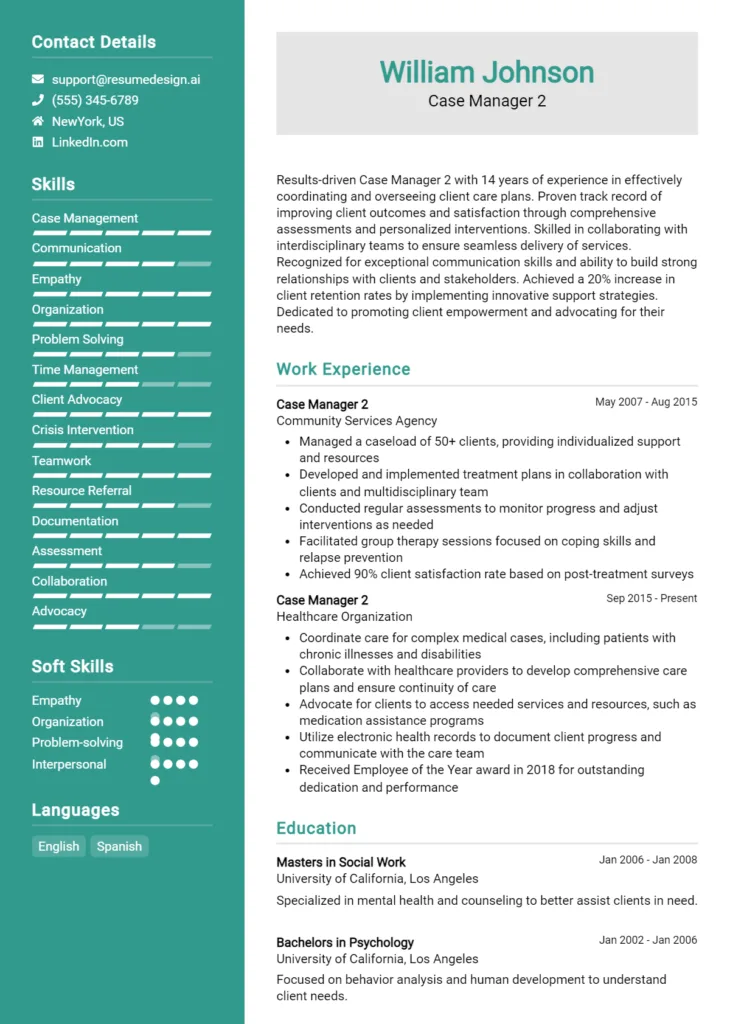Medical Coding Specialist Core Responsibilities
A Medical Coding Specialist plays a crucial role in the healthcare industry by accurately translating medical diagnoses, procedures, and services into standardized codes for billing and record-keeping. This position requires technical proficiency in coding systems like ICD-10 and CPT, strong operational skills to manage documentation, and problem-solving abilities to resolve discrepancies. By effectively bridging clinical and administrative departments, these specialists contribute to the organization's financial health and compliance, making a well-structured resume essential for showcasing these vital qualifications.
Common Responsibilities Listed on Medical Coding Specialist Resume
- Accurately assign and review medical codes for diagnoses and procedures.
- Ensure compliance with coding guidelines and regulations.
- Collaborate with healthcare providers to clarify documentation.
- Conduct audits to identify coding errors and discrepancies.
- Update and maintain coding manuals and databases.
- Assist in billing processes and claims submissions.
- Provide training and support to staff on coding practices.
- Stay current with coding updates and industry trends.
- Analyze and resolve coding-related issues or denials.
- Utilize electronic health records (EHR) systems effectively.
- Participate in quality assurance initiatives.
High-Level Resume Tips for Medical Coding Specialist Professionals
In the competitive field of medical coding, a well-crafted resume serves as your first and often only chance to make a lasting impression on potential employers. It’s essential that your resume not only highlights your skills and qualifications but also effectively showcases your achievements and experiences relevant to the role. A thoughtfully designed resume can set you apart from other candidates, demonstrating your understanding of the medical coding profession and your commitment to excellence. This guide will provide practical and actionable resume tips specifically tailored for Medical Coding Specialist professionals, ensuring you present the best version of yourself to hiring managers.
Top Resume Tips for Medical Coding Specialist Professionals
- Tailor your resume to each job description, using keywords and phrases that align with the specific requirements of the position.
- Highlight relevant experience in medical coding, including the types of codes you worked with (ICD-10, CPT, HCPCS) and the settings in which you worked (hospitals, clinics, etc.).
- Quantify your achievements by including statistics such as accuracy rates, the volume of claims processed, or improvements in coding efficiency.
- Showcase any certifications you hold, such as CPC, CCS, or CCA, as these are crucial in establishing your credibility in the field.
- Include a skills section that highlights industry-specific skills such as knowledge of medical terminology, anatomy, and compliance regulations.
- Utilize a clean and organized format that enhances readability; bullet points and clear headings guide the reader’s eye.
- Incorporate relevant continuing education or training that demonstrates your commitment to staying current in the medical coding field.
- Use action verbs to describe your responsibilities and accomplishments, which can help convey a sense of proactivity and results-oriented performance.
- Keep your resume concise, ideally one page, focusing on the most relevant information while avoiding unnecessary details.
By implementing these tips, you can significantly increase your chances of landing a job in the Medical Coding Specialist field. A polished and targeted resume will not only catch the attention of hiring managers but also clearly convey your qualifications and readiness to contribute effectively to their organization.
Why Resume Headlines & Titles are Important for Medical Coding Specialist
In the competitive field of medical coding, a well-crafted resume headline or title plays a crucial role in capturing the attention of hiring managers. A strong headline summarizes a candidate's key qualifications and professional strengths in a single impactful phrase, providing a snapshot of what they bring to the table. This concise and relevant summary should directly relate to the job being applied for, ensuring that it resonates with the specific needs of the employer. By immediately highlighting the candidate's expertise in medical coding, a compelling headline can set the tone for the rest of the resume, encouraging hiring managers to delve deeper into the applicant's qualifications.
Best Practices for Crafting Resume Headlines for Medical Coding Specialist
- Keep it concise—limit the headline to one or two lines.
- Make it role-specific by including relevant terms like "Certified Medical Coder" or "Experienced Coding Specialist."
- Highlight key qualifications or skills that align with the job description.
- Use action words or phrases that convey a sense of accomplishment.
- Avoid vague language or jargon that may confuse the reader.
- Consider including years of experience to establish credibility.
- Tailor the headline for each application to reflect the specific role's requirements.
- Incorporate any relevant certifications or specialties to enhance value.
Example Resume Headlines for Medical Coding Specialist
Strong Resume Headlines
"Certified Medical Coder with Over 5 Years of Experience in Ambulatory Surgery Coding"
"Detail-Oriented Medical Coding Specialist with Expertise in ICD-10 and CPT Coding"
"Proven Medical Coder with a Track Record of Reducing Claim Denials by 30%"
Weak Resume Headlines
“Medical Coder Looking for Work”
“Experienced Professional”
The strong headlines are effective because they provide specific information about the candidate's qualifications, skills, and achievements, making them stand out in a crowded applicant pool. They directly address the needs of the hiring manager and convey a sense of professionalism and readiness. In contrast, the weak headlines fail to impress because they lack specificity and do not communicate any relevant information about the candidate's expertise or value. This vagueness can lead hiring managers to overlook these candidates in favor of those with more compelling, focused headlines.
Writing an Exceptional Medical Coding Specialist Resume Summary
A well-crafted resume summary is crucial for a Medical Coding Specialist as it serves as the first impression for hiring managers. This brief yet powerful introduction quickly communicates your key skills, relevant experience, and significant accomplishments, making it easier for employers to evaluate your fit for the position. A strong summary is concise, impactful, and tailored to the specific job application, allowing you to stand out in a competitive field and entice hiring managers to read further.
Best Practices for Writing a Medical Coding Specialist Resume Summary
- Quantify achievements: Use specific numbers and metrics to demonstrate your impact, such as the number of codes processed or error reduction percentages.
- Focus on relevant skills: Highlight skills that are directly related to the job description, such as proficiency in ICD-10 coding or knowledge of medical terminology.
- Tailor for the job description: Customize your summary to reflect the language and requirements mentioned in the job listing.
- Keep it concise: Aim for 2-4 sentences that deliver your message effectively without overwhelming the reader.
- Showcase certifications: Include any relevant certifications, such as CPC or CCS, to validate your expertise in medical coding.
- Use action verbs: Start sentences with strong action verbs to convey a sense of proactivity and competence.
- Emphasize problem-solving abilities: Highlight your ability to identify and resolve coding discrepancies or issues efficiently.
- Maintain professionalism: Use a formal tone and avoid casual language to project a professional image.
Example Medical Coding Specialist Resume Summaries
Strong Resume Summaries
Detail-oriented Medical Coding Specialist with over 5 years of experience in accurately coding and billing for over 1,200 patient records monthly, resulting in a 98% claim approval rate. Certified Professional Coder (CPC) with expertise in ICD-10 and CPT coding.
Results-driven Medical Coding Specialist with a proven track record of reducing coding errors by 30% through meticulous review processes and staff training. Skilled in utilizing electronic health record (EHR) systems and maintaining compliance with industry regulations.
Dedicated Medical Coding Specialist with extensive experience in outpatient and inpatient coding, achieving a 95% accuracy rate. Proficient in medical terminology and well-versed in resolving billing discrepancies efficiently.
Weak Resume Summaries
Medical Coding Specialist with some experience in coding and billing. Looking for a new opportunity to grow in a medical environment.
Hardworking individual with skills in medical coding. I am seeking a position where I can apply my knowledge.
The strong resume summaries are effective because they include specific achievements, quantify results, and demonstrate relevant skills tailored to the Medical Coding Specialist role. In contrast, the weak summaries lack detail, fail to provide quantifiable outcomes, and come across as generic, which does not engage hiring managers or convey the candidate's capabilities adequately.
Work Experience Section for Medical Coding Specialist Resume
The work experience section of a Medical Coding Specialist resume is crucial as it serves as a testament to the candidate's technical skills and their ability to manage teams effectively while delivering high-quality results. This section not only showcases the candidate's proficiency in medical coding practices but also highlights their accomplishments in terms of efficiency, accuracy, and collaboration with healthcare teams. By quantifying achievements and aligning past experiences with industry standards, candidates can demonstrate their value to potential employers, making this section a pivotal component of the resume.
Best Practices for Medical Coding Specialist Work Experience
- Focus on specific coding software and systems used in previous roles.
- Quantify achievements with metrics, such as accuracy rates or cost savings.
- Highlight collaborative projects that demonstrate teamwork and communication skills.
- Include relevant certifications and ongoing education related to coding standards.
- Mention any leadership roles or initiatives that improved coding processes.
- Use active language to convey a sense of ownership and responsibility.
- Tailor work experience to reflect the requirements of the job you are applying for.
- Showcase problem-solving skills by describing challenges faced and solutions implemented.
Example Work Experiences for Medical Coding Specialist
Strong Experiences
- Led a team of 5 coders to achieve a 98% accuracy rate in coding claims, resulting in a 20% reduction in reimbursement delays over six months.
- Implemented a new coding software that increased productivity by 30%, allowing the department to process 200 additional claims per week.
- Collaborated with healthcare providers to standardize documentation practices, enhancing coding efficiency and decreasing coding errors by 15%.
- Trained and mentored 10 junior coders, leading to a 25% improvement in their coding accuracy within three months.
Weak Experiences
- Responsible for coding tasks and other administrative duties.
- Worked with a team on various projects without specific outcomes.
- Followed coding guidelines and procedures.
- Assisted in training new staff.
The examples of strong experiences are considered effective because they provide measurable outcomes and demonstrate specific contributions to the organization, showcasing technical leadership and collaboration. In contrast, the weak experiences lack detail and quantifiable results, making them vague and unimpressive, which does not effectively communicate the candidate's skills or impact in previous roles.
Education and Certifications Section for Medical Coding Specialist Resume
The education and certifications section of a Medical Coding Specialist resume is a critical component that showcases the candidate's academic achievements, relevant certifications, and commitment to ongoing professional development. This section not only highlights the educational background that is essential for understanding medical terminology and coding systems but also emphasizes the candidate's adherence to industry standards through their certifications. By detailing relevant coursework and specialized training, candidates can significantly bolster their credibility and demonstrate a strong alignment with the requirements of the job role, making them more appealing to potential employers.
Best Practices for Medical Coding Specialist Education and Certifications
- Highlight relevant degrees, such as an Associate's or Bachelor's in Health Information Management or a related field.
- Include industry-recognized certifications, such as Certified Professional Coder (CPC) or Certified Coding Specialist (CCS).
- Detail relevant coursework that pertains to medical coding, billing, and health information systems.
- List any specialized training programs or workshops attended that relate to coding or healthcare IT.
- Keep the information up-to-date to reflect any recent qualifications or certifications obtained.
- Use clear and concise language to ensure easy readability and understanding of qualifications.
- Prioritize certifications that are highly regarded in the industry to stand out to employers.
- Consider including any continuing education credits or courses to demonstrate commitment to professional development.
Example Education and Certifications for Medical Coding Specialist
Strong Examples
- Associate's Degree in Health Information Technology, XYZ Community College, May 2021
- Certified Professional Coder (CPC), American Academy of Professional Coders, Certified 2022
- Coursework: Medical Terminology, Advanced Medical Coding, and Health Data Management
- Completion of Certified Coding Specialist (CCS) training program, ABC Institute, August 2023
Weak Examples
- Bachelor's Degree in Business Administration, XYZ University, 2010
- Certificate in Office Management, DEF Vocational School, 2015
- Outdated certification in Medical Billing (2010) not recognized by current standards.
- General Education Degree, GHI High School, Graduated 2005
The strong examples are considered effective because they directly relate to the field of medical coding, demonstrating relevant education and certifications that employers seek. They reflect up-to-date training and recognized credentials that enhance the candidate's qualifications. In contrast, the weak examples illustrate irrelevant educational qualifications and outdated certifications that do not align with the specific requirements of a Medical Coding Specialist, potentially diminishing the candidate's appeal to employers in the healthcare industry.
Top Skills & Keywords for Medical Coding Specialist Resume
In the competitive field of medical coding, having a well-crafted resume that highlights the right skills is crucial for standing out to potential employers. A Medical Coding Specialist must not only be proficient in coding systems and healthcare regulations but also possess soft skills that facilitate communication and collaboration within healthcare teams. By effectively showcasing both hard and soft skills, candidates can demonstrate their qualifications and readiness to contribute to the accuracy and efficiency of medical billing processes. For more insights on how to best present your skills, you can explore our skills resource.
Top Hard & Soft Skills for Medical Coding Specialist
Soft Skills
- Attention to Detail
- Communication Skills
- Problem-Solving Abilities
- Time Management
- Adaptability
- Team Collaboration
- Critical Thinking
- Organizational Skills
- Empathy
- Ethical Judgment
Hard Skills
- Proficiency in ICD-10, CPT, and HCPCS Coding
- Knowledge of Medical Terminology
- Familiarity with Electronic Health Records (EHR)
- Understanding of HIPAA Regulations
- Experience with Medical Billing Software
- Ability to Conduct Audits
- Proficient in Data Entry
- Knowledge of Insurance Policies and Procedures
- Coding Compliance
- Experience with Revenue Cycle Management
By emphasizing these essential skills in your resume, you can enhance your chances of impressing hiring managers and securing a position as a Medical Coding Specialist. Additionally, don't forget to detail your relevant work experience to further substantiate your qualifications.
Stand Out with a Winning Medical Coding Specialist Cover Letter
Dear [Hiring Manager's Name],
I am writing to express my interest in the Medical Coding Specialist position at [Company Name] as advertised on [Where You Found the Job Posting]. With a strong foundation in medical coding practices, a keen eye for detail, and a commitment to ensuring accuracy in healthcare documentation, I am excited about the opportunity to contribute to your team. My certification as a Certified Professional Coder (CPC) from the American Academy of Professional Coders (AAPC) has equipped me with the knowledge and skills necessary to excel in this role.
In my previous position at [Previous Employer], I successfully managed the coding and billing processes for a diverse range of medical specialties. I consistently maintained a coding accuracy rate of over 98%, which significantly reduced claim denials and improved revenue cycle efficiency. By staying up to date with the latest coding guidelines and regulations, including ICD-10 and CPT coding systems, I ensured compliance and optimized reimbursement for the healthcare facility. My experience collaborating with healthcare providers, billing departments, and insurance companies has honed my ability to communicate complex coding information clearly and effectively.
I am particularly drawn to [Company Name] because of its commitment to delivering high-quality patient care and its reputation for fostering professional development. I am eager to bring my expertise in medical coding to your organization and contribute to your mission of providing exceptional healthcare services. I am confident that my background and dedication to continuous learning will make me a valuable asset to your team.
Thank you for considering my application. I look forward to the opportunity to discuss how my skills and experiences align with the needs of [Company Name]. I am enthusiastic about the possibility of working together to enhance the efficiency and accuracy of your medical coding processes.
Sincerely,
[Your Name]
[Your Phone Number]
[Your Email Address]
Common Mistakes to Avoid in a Medical Coding Specialist Resume
When crafting a resume for a Medical Coding Specialist position, it's crucial to present your skills and experiences effectively. However, many applicants make common mistakes that can undermine their chances of landing an interview. Understanding these pitfalls can help you create a compelling resume that highlights your qualifications and attention to detail—qualities that are vital in the field of medical coding. Here are some common mistakes to avoid:
Lack of Specific Coding Certifications: Not mentioning relevant certifications, such as CPC, CCS, or CCA, can make your resume less competitive. Employers look for certified professionals who have demonstrated their expertise.
Vague Job Descriptions: Failing to provide specific details about your previous roles can leave employers questioning your capabilities. Use quantifiable achievements and relevant tasks to clearly demonstrate your experience.
Ignoring Keywords: Many employers use Applicant Tracking Systems (ATS) to filter resumes. Not incorporating industry-specific keywords can result in your resume being overlooked. Carefully read job descriptions to identify important terms to include.
Excessive Formatting: Overly complicated formatting or excessive use of colors can distract from the content of your resume. Keep it professional and easy to read, using consistent fonts and clear headings.
Typos and Grammatical Errors: In a field that demands precision and attention to detail, having spelling or grammatical mistakes in your resume can be a red flag. Always proofread your document or ask someone else to review it.
Irrelevant Work Experience: Including unrelated work experience can dilute your resume's impact. Focus on positions and tasks that are relevant to medical coding, emphasizing skills that transfer to the role.
Not Highlighting Technical Skills: Medical coding often requires familiarity with specific software and coding systems. Failing to mention your proficiency in tools like ICD-10, CPT, or EHR systems may lead employers to question your technical capabilities.
Neglecting Continuing Education: The medical coding field is constantly evolving. Not mentioning any ongoing education, workshops, or seminars can imply that you are not committed to staying updated with industry changes and advancements.
Conclusion
As a Medical Coding Specialist, you're at the forefront of the healthcare industry, ensuring that medical records are accurately coded and billed. This role requires a keen eye for detail, understanding of medical terminology, and proficiency with coding systems like ICD-10, CPT, and HCPCS. Your expertise not only aids healthcare providers in obtaining proper reimbursement but also plays a vital role in maintaining the integrity of patient records.
In this article, we covered the essential skills and qualifications that employers seek in a Medical Coding Specialist. We highlighted the importance of certifications, such as the Certified Professional Coder (CPC) and Certified Coding Specialist (CCS), and the value of ongoing education in this ever-evolving field. Additionally, we discussed the significance of having a well-crafted resume that showcases your qualifications and experience effectively.
Now is the time to take action! Ensure your resume reflects your skills and achievements as a Medical Coding Specialist. Utilize resources such as resume templates to design a visually appealing document, or try our resume builder for a user-friendly experience. Explore resume examples for inspiration, and don't forget to enhance your job application with a compelling cover letter using our cover letter templates. Take the next step in your career by refining your resume today!

